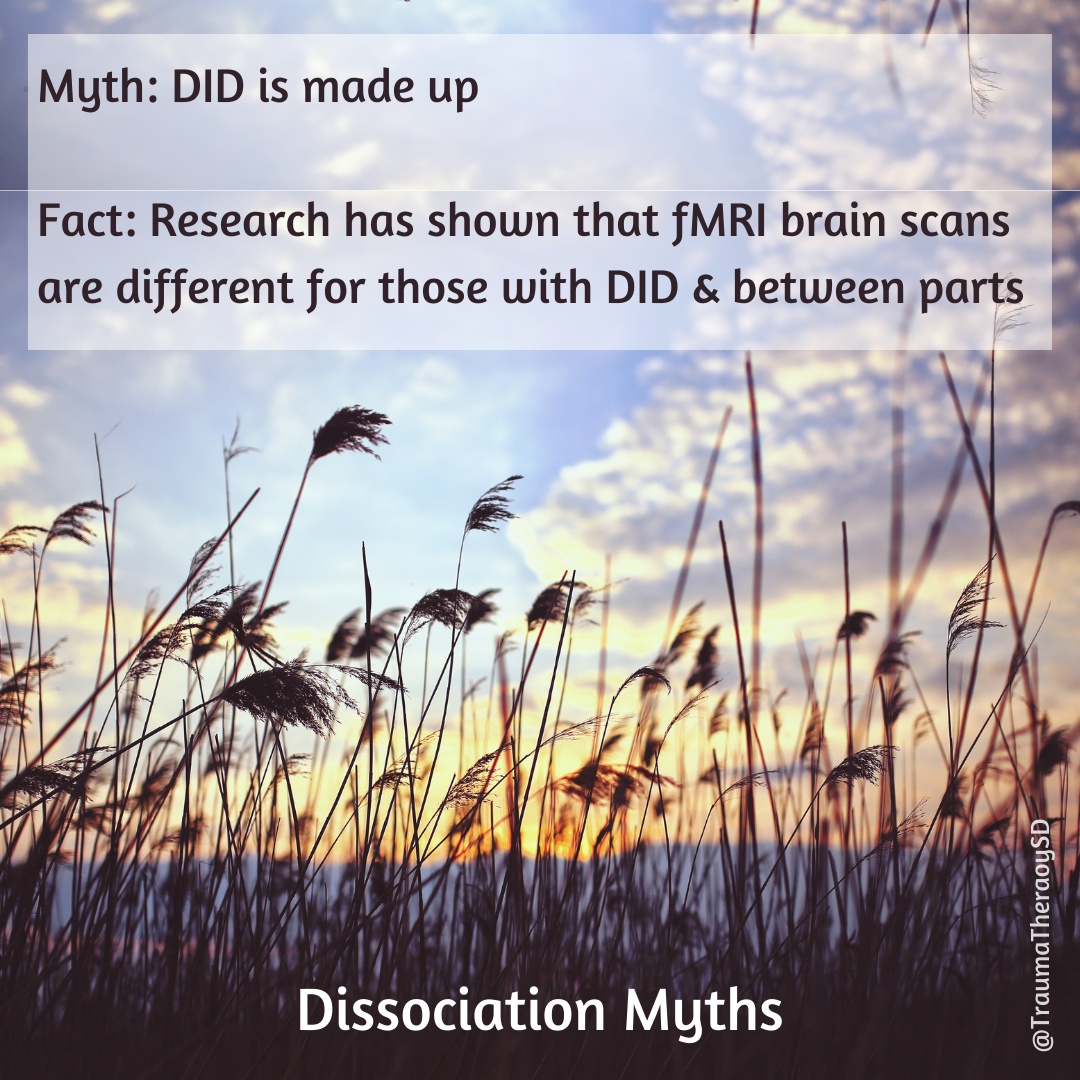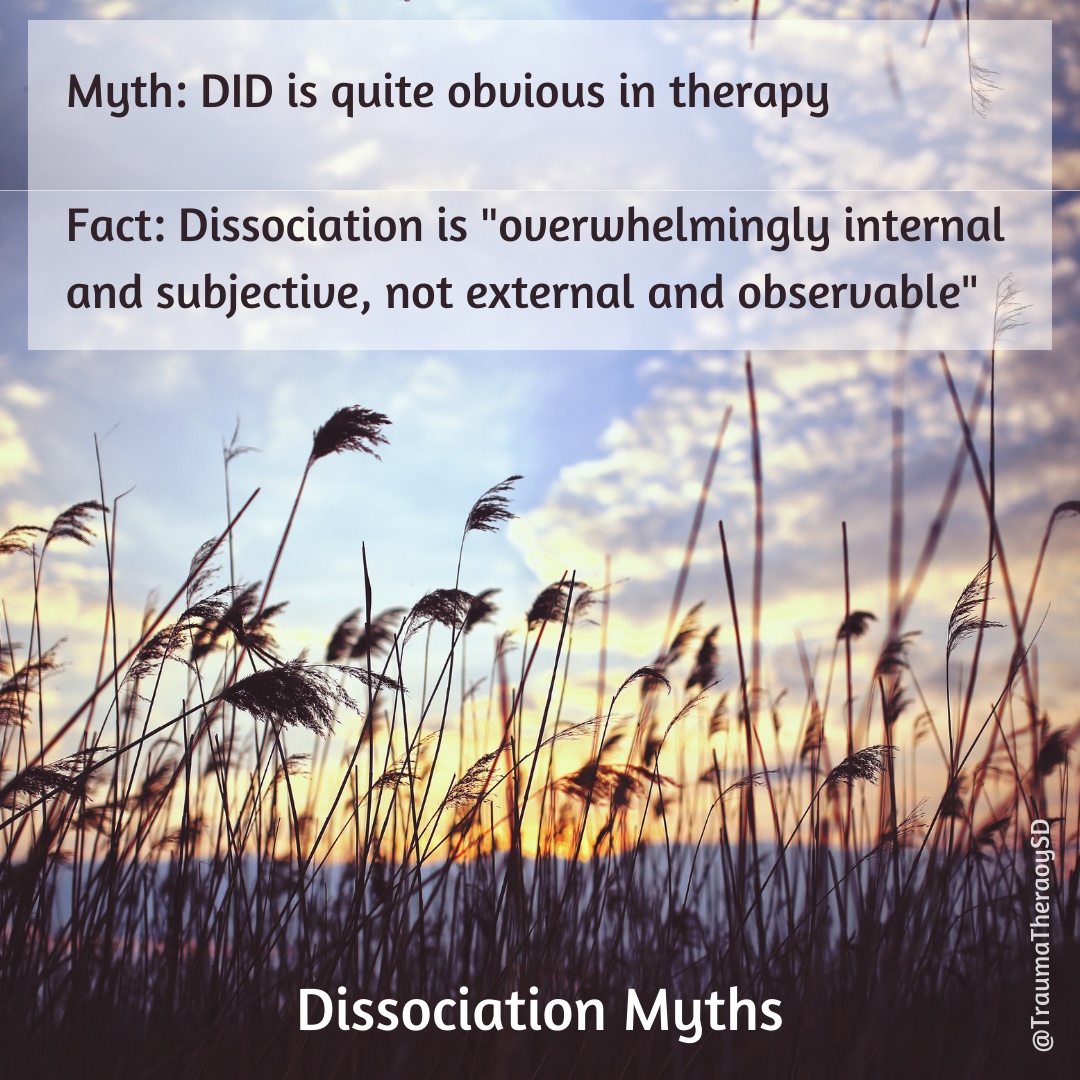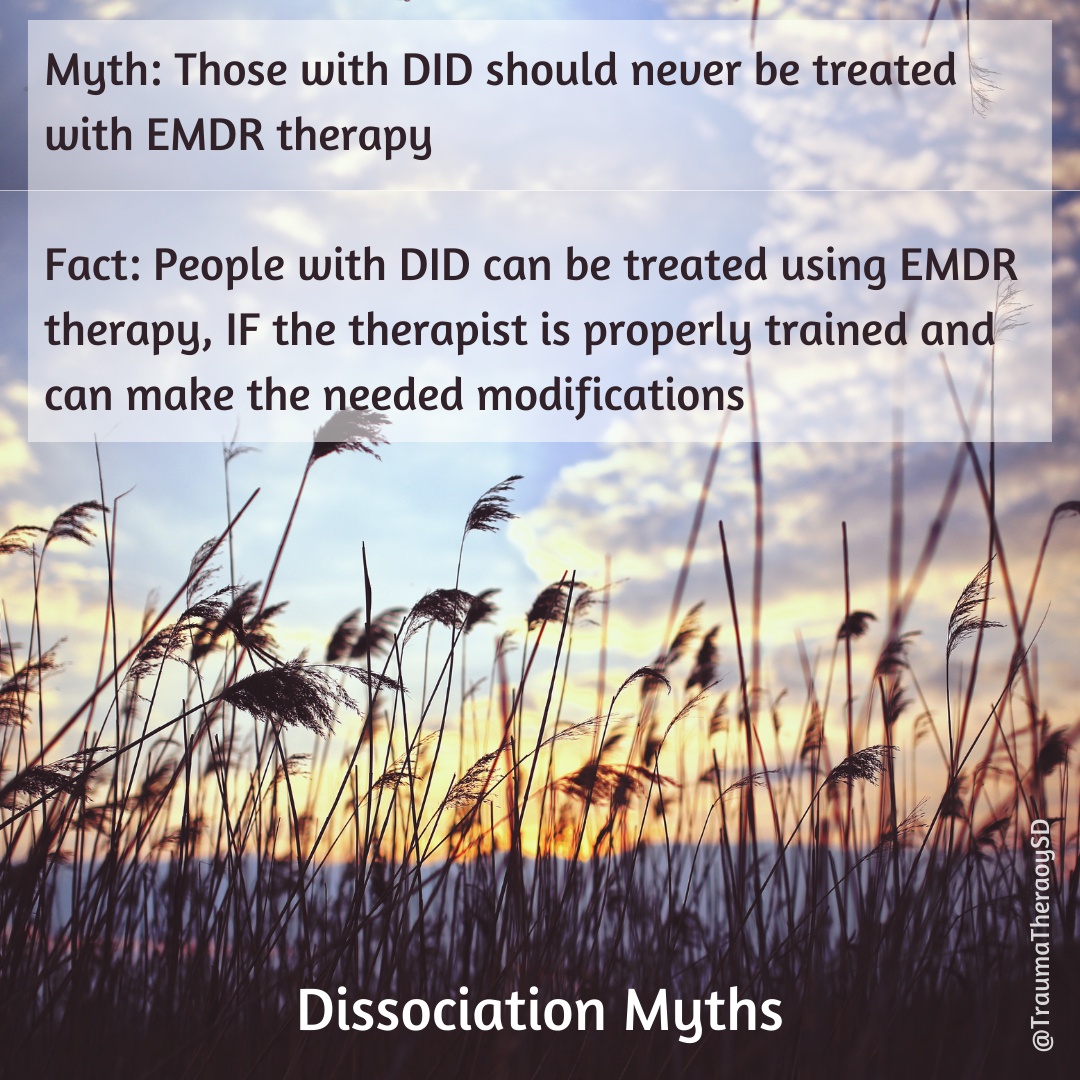DID Myths
There is a lot of misinformation and myths out there about dissociative identity disorder and other specified dissociative disorder. So, let’s debunk some of these myths.
Myth: Dissociative Identity Disorder (DID) and Other Specified Dissociative Disorder (OSDD) are extremely rare.
Fact: Worldwide, approximately 1.1% of people in the general community meet criteria for DID in their lifetimes. This is a small percentage, but it is the same percentage of people who have Schizophrenia and we don’t consider it a very rare disorder.
Myth: DID is made up.
Fact: Research has shown that fMRI brain scans are different in those with DID people and between parts of self. These scans can also tell differences in symptom severity. It is not made up nor all in the heads of either those diagnosed with DID or in the minds of clinicians.
Myth: DID is quite obvious in therapy, as seen in the movies.
Fact: Dissociation is “overwhelmingly internal and subjective, not external and observable.” A major objective in the development of DID/OSDD is that the person can continue on as if everything is ‘normal.’ If people were switching, suddenly demanding to be called a different name, speaking in a different accent this would draw attention and make it difficult for the individual to keep functioning in day-to-day life.
Myth: DID is impossible to diagnose, or at least impossible for the average clinician in private practice. Who has an fMRI machine after all?
Fact: Dissociation can absolutely be recognized and diagnosed by the average clinician – with training and the use of assessment tools. It is not so easy as the movies make it appear, but if we simply had the proper training in grad school to know this was an issues we would likely need to assess for it would be much easier. We do have reliable tools to both screen for and to diagnose DID/OSDD.
Myth: Those with DID should never be treated with EMDR therapy.
Fact: People with DID can be treated using EMDR therapy, IF the therapist is properly trained and can make the needed modifications. If the therapist doesn’t have the training and expertise to work with dissociation then EMDR therapy can be damaging and overwhelm the system, because it is a powerful tool being misused.
And as a point of interest as well, I want to point out that there are a lot of gender diverse folx who experience significant levels of dissociation, including DID and OSDD.
















